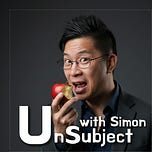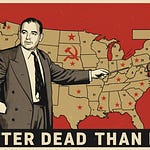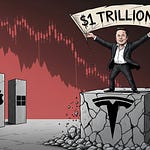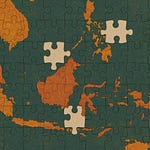A mentor figure sent me an email about one of my latest blog posts. He said he stopped reading after the first line because I had used the left-right paradigm to frame my argument.
My initial reaction was a mix of emotions – first, the pleasant surprise that people are actually reading my work, then a deeper reflection on how I express my ideas. This interaction challenged me to examine how I, too, sometimes fall into the trap of oversimplified thinking.
I don't actually like the left-right paradigm, or even the four-quadrants political compass model. While these frameworks can be useful tools in academic research or media analysis, they often do more harm than good in our everyday discourse. Human beings are far more complex – our views shaped by countless experiences, relationships, and circumstances that can't be reduced to simple categories like "progressive" or "conservative," "collectivist" or "individualist."
Consider how this oversimplification plays out in current debates. When we discuss immigration, or abortion, for instances, people are quickly labeled either "pro" or "anti," leaving no room for nuanced positions. These labels then become shields behind which we stop engaging with the actual complexity of the issue.
This tendency to oversimplify extends beyond political labels. I've noticed how many people, myself included, sometimes fall into seeing the world as a story of heroes fighting villains. This isn't new – you can find this pattern in our oldest myths and stories. But when we apply this framework to modern politics, whether domestic or international, we lose something crucial: our ability to understand each other.
Sure, there are people who do things most of us would condemn. But here's what's interesting: almost everyone believes they're on the right side of history. This creates a peculiar situation where large parts of society view the other half as either evil or foolish. Think about that for a moment – when you dismiss people who disagree with you as evil or stupid, they're likely thinking exactly the same about you. I've experienced this myself: times when I quickly judged someone's position, only to later understand the valid concerns underlying their perspective.
This brings me to another thought-provoking conversation. While in India for the Mont Pelerin Society meeting, I met with my old friend Barun Mitra, who spent decades as an activist for freedom and classical liberalism. Over time, his thinking has evolved significantly, much like my own. Through our long discussions, we explored how our earlier certainties about political ideologies had given way to something more valuable: a recognition that what our world needs most is compassion and curiosity – the willingness to see through others' eyes and find ways to thrive together.
This evolution in thinking suggests something fundamental about living in an open society: the strength of democracy lies not in everyone agreeing, but in our ability to disagree productively. When we encounter different viewpoints, perhaps we could approach them with curiosity rather than judgment. What experiences shaped this person's perspective? What valid concerns might they have that I haven't considered?
Even as we value individual freedom and personal conviction, we must recognize that no one is truly an island. The idea of living in a completely isolated environment, like a hermit, isn't just unrealistic – it misses something fundamental about human nature. In our pursuit of individual freedom, we shouldn't forget that we naturally seek companions and community. Maybe this is the balance we need to find: celebrating our differences while acknowledging our deep need for connection, understanding, and acknowledgement.
I invite you to reflect on your own experiences: When was the last time you changed your mind after truly listening to someone with a different perspective? How might our public discourse change if we approached disagreements with curiosity instead of judgment? Your comments and engagement with these ideas continue to challenge and refine my thinking. Together, perhaps we can work toward a more nuanced understanding of our complex world, one conversation at a time.











